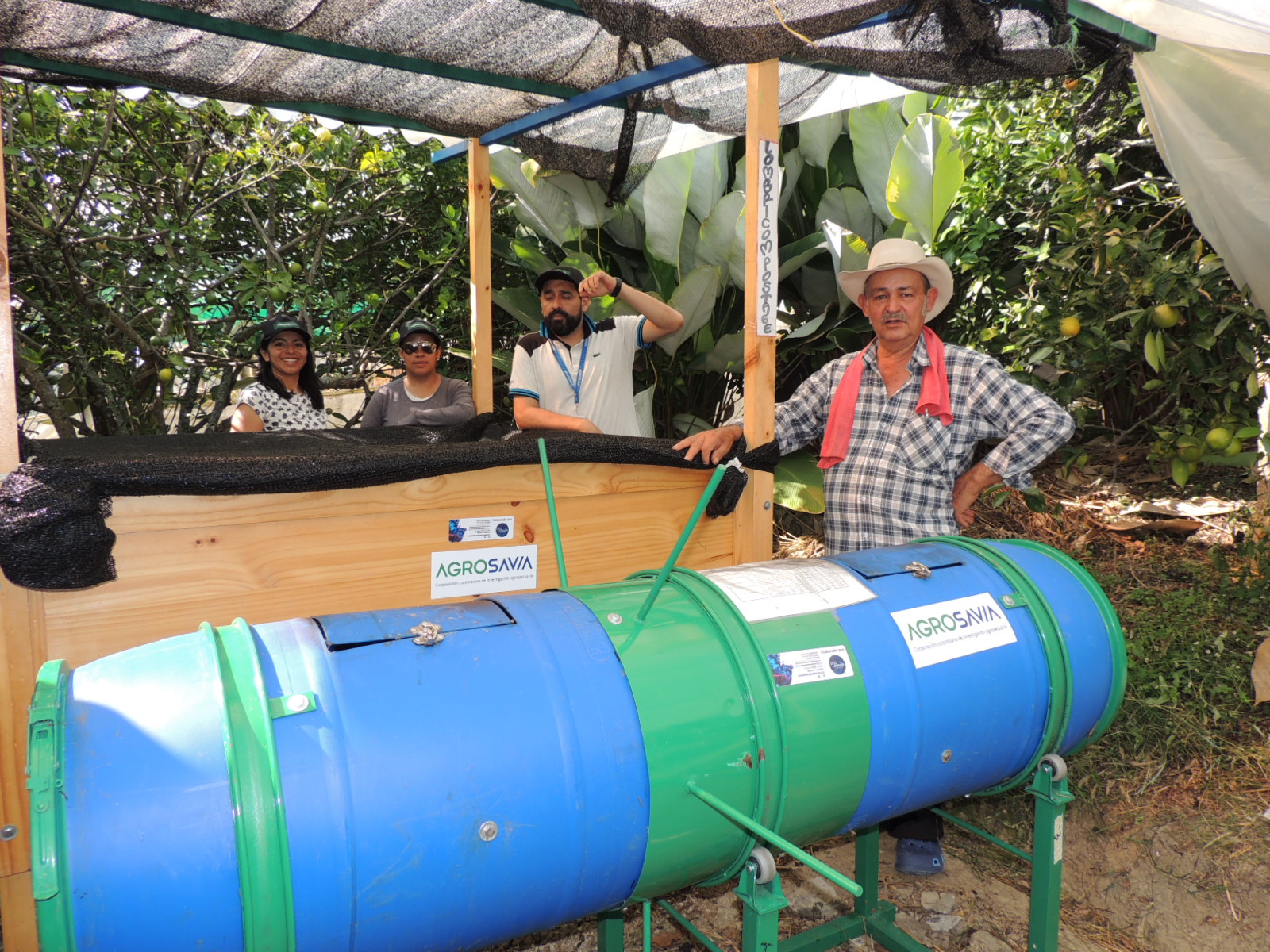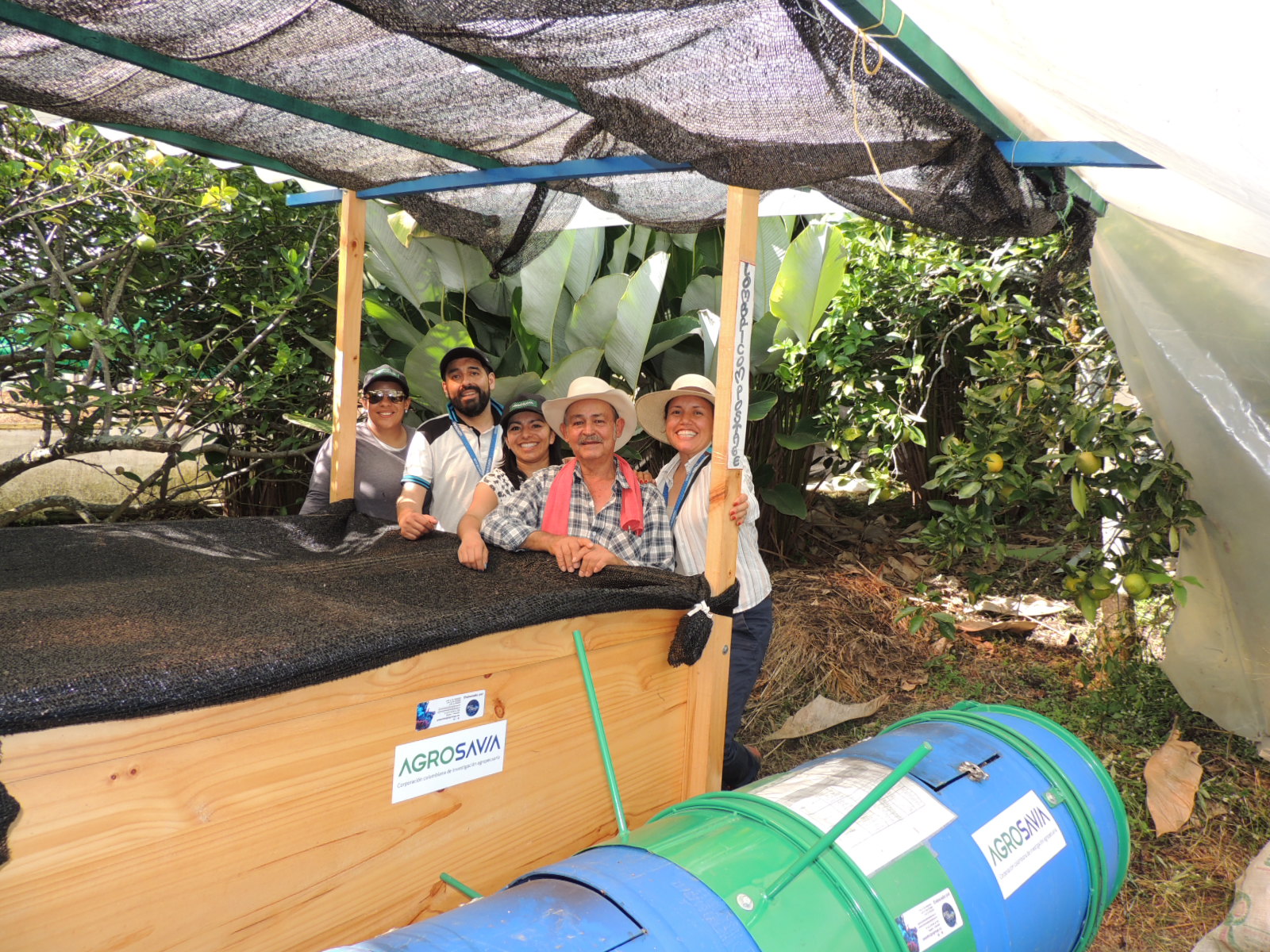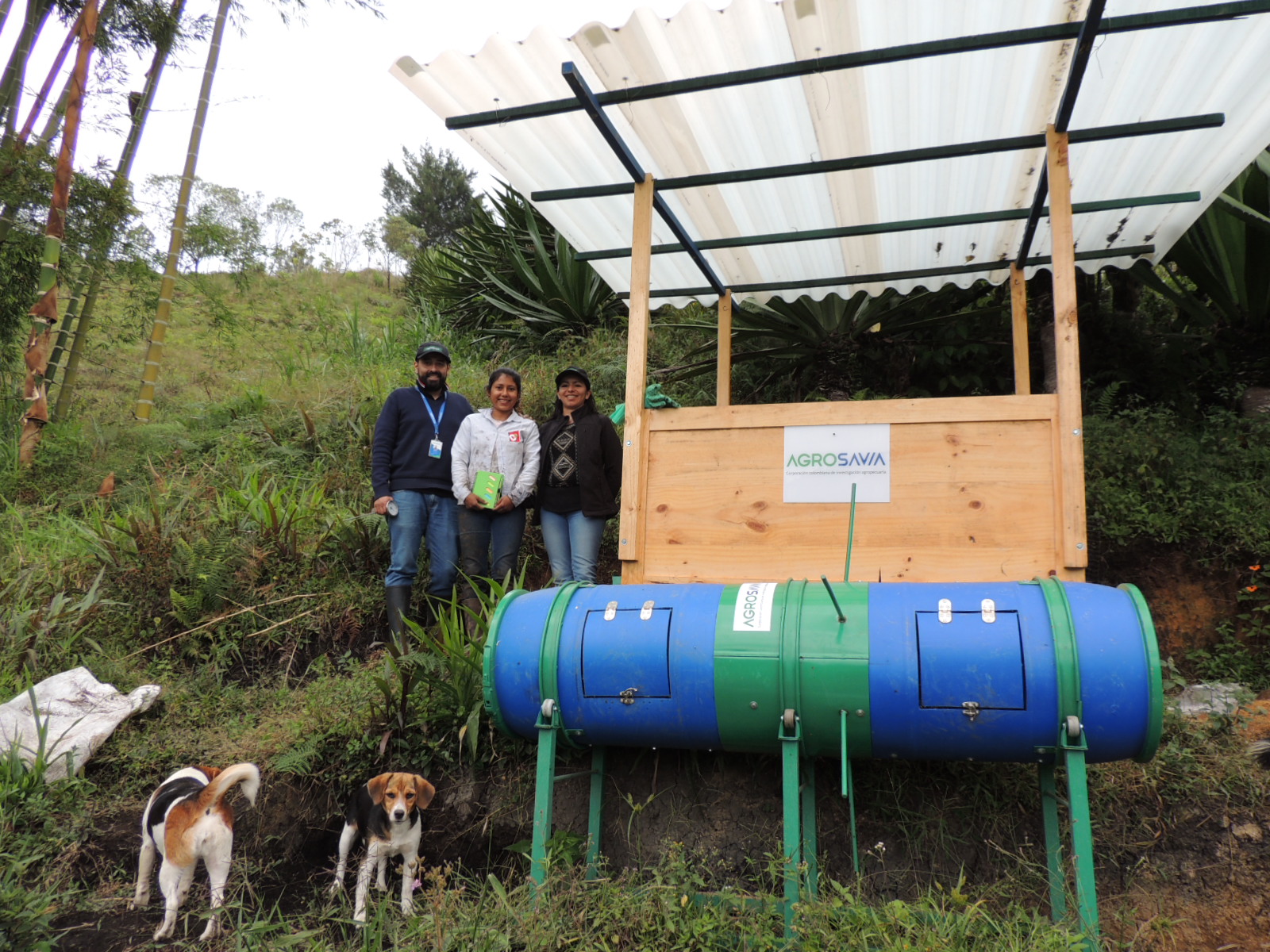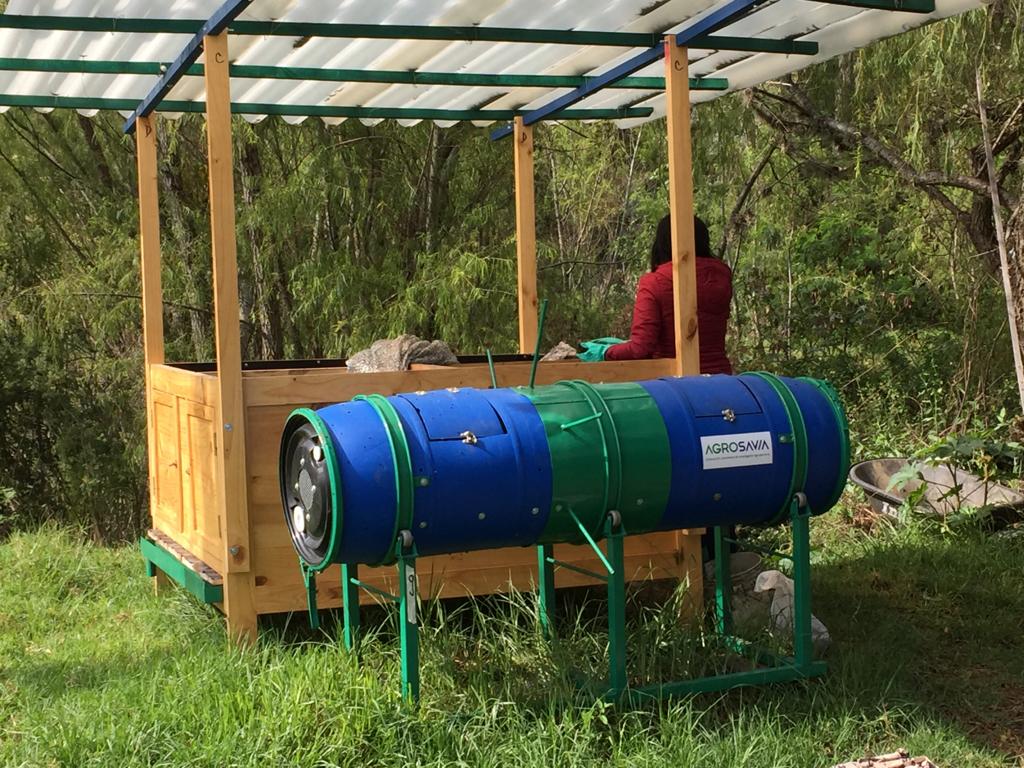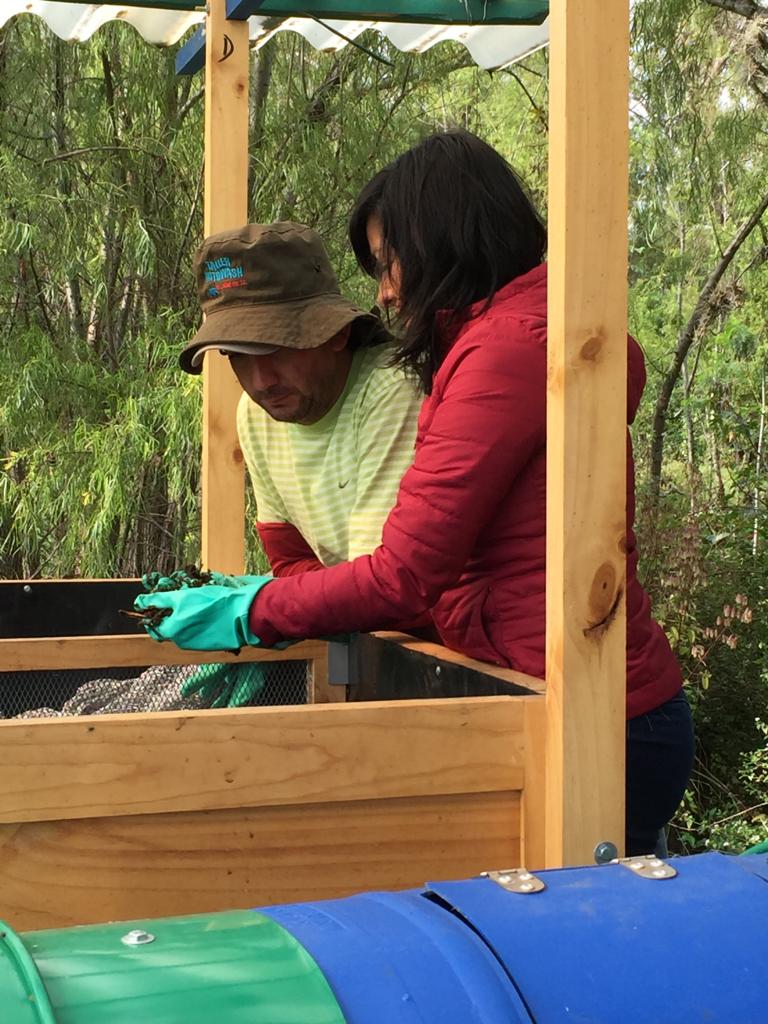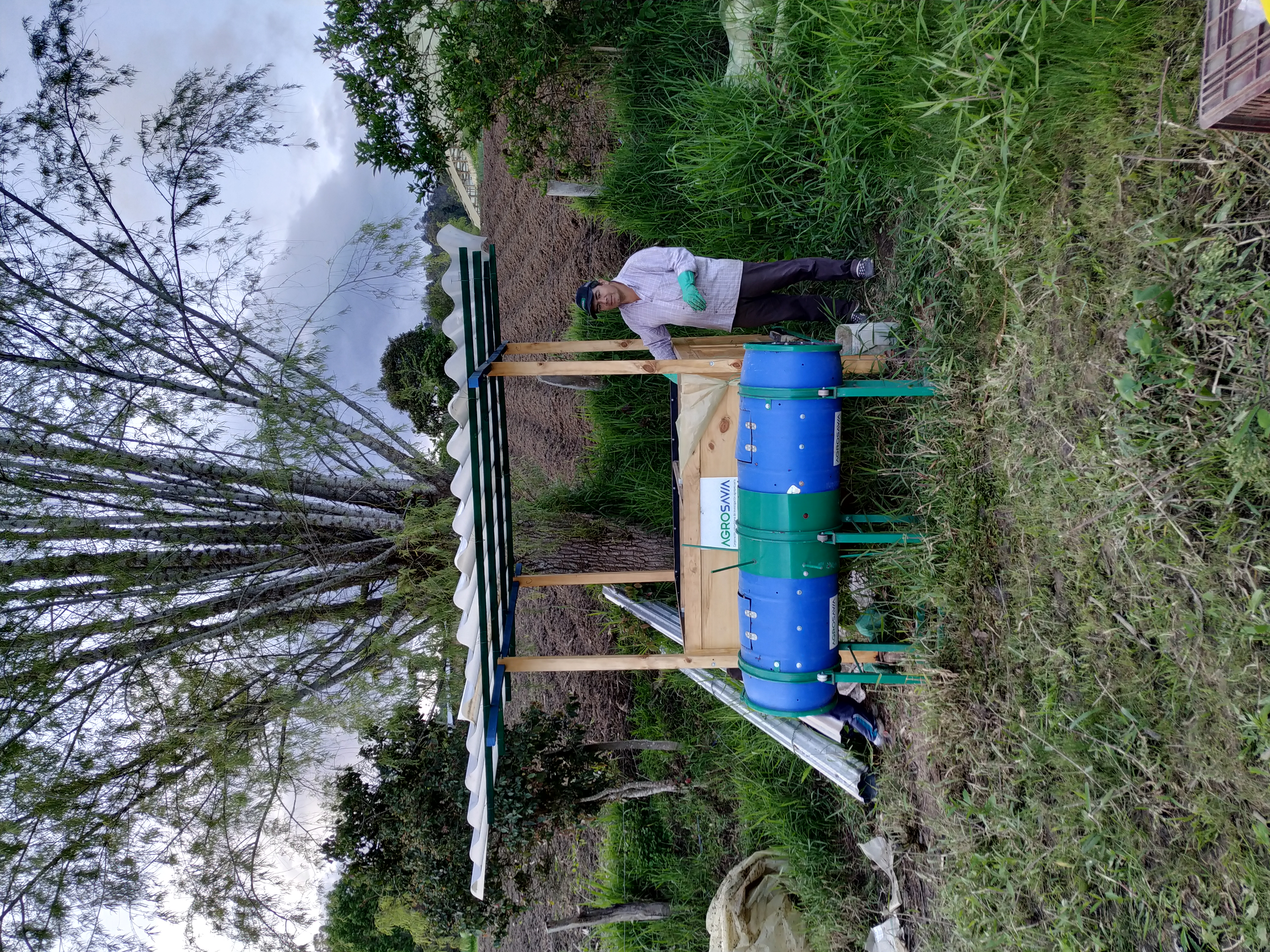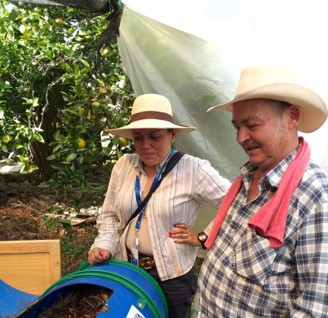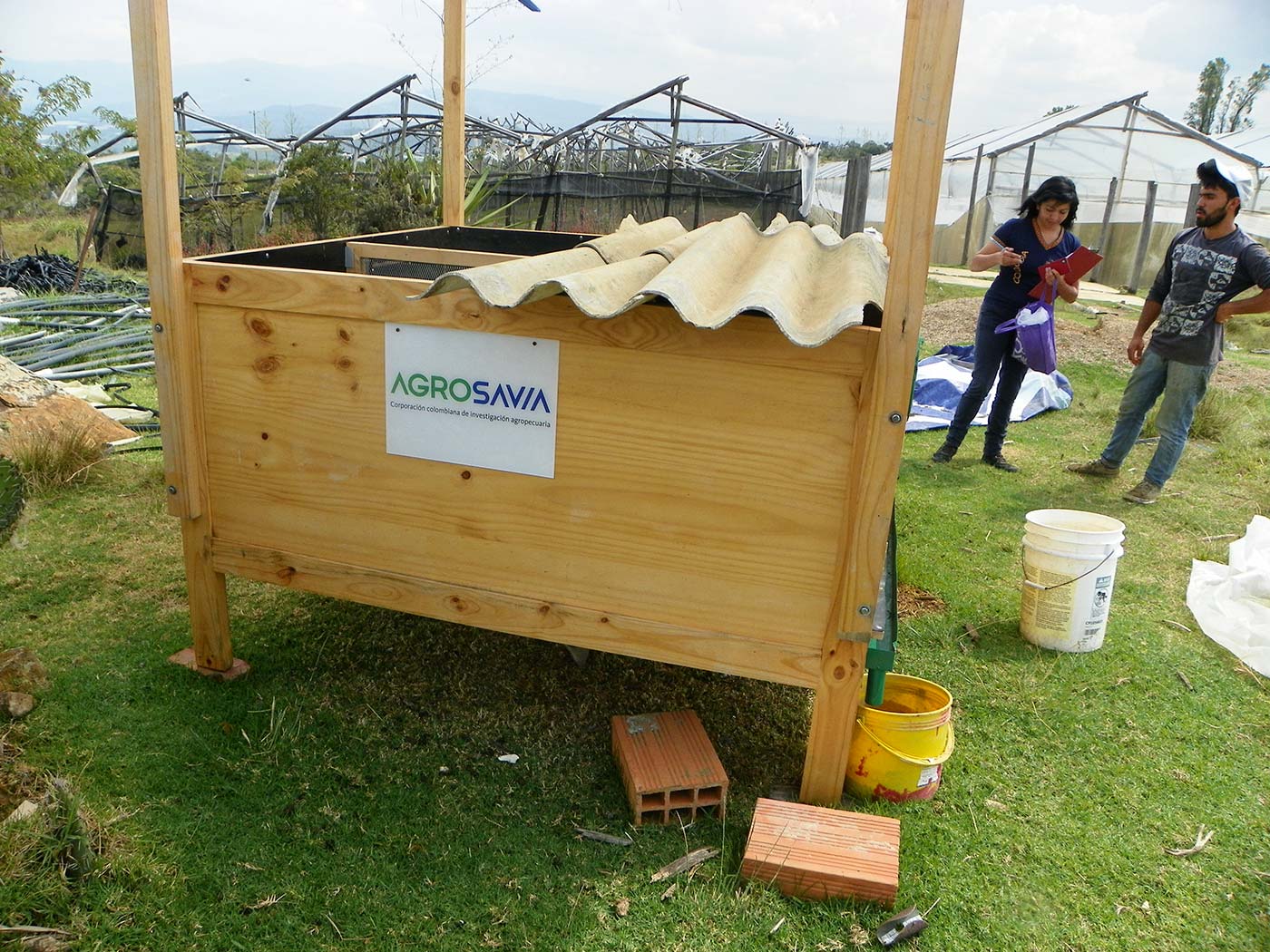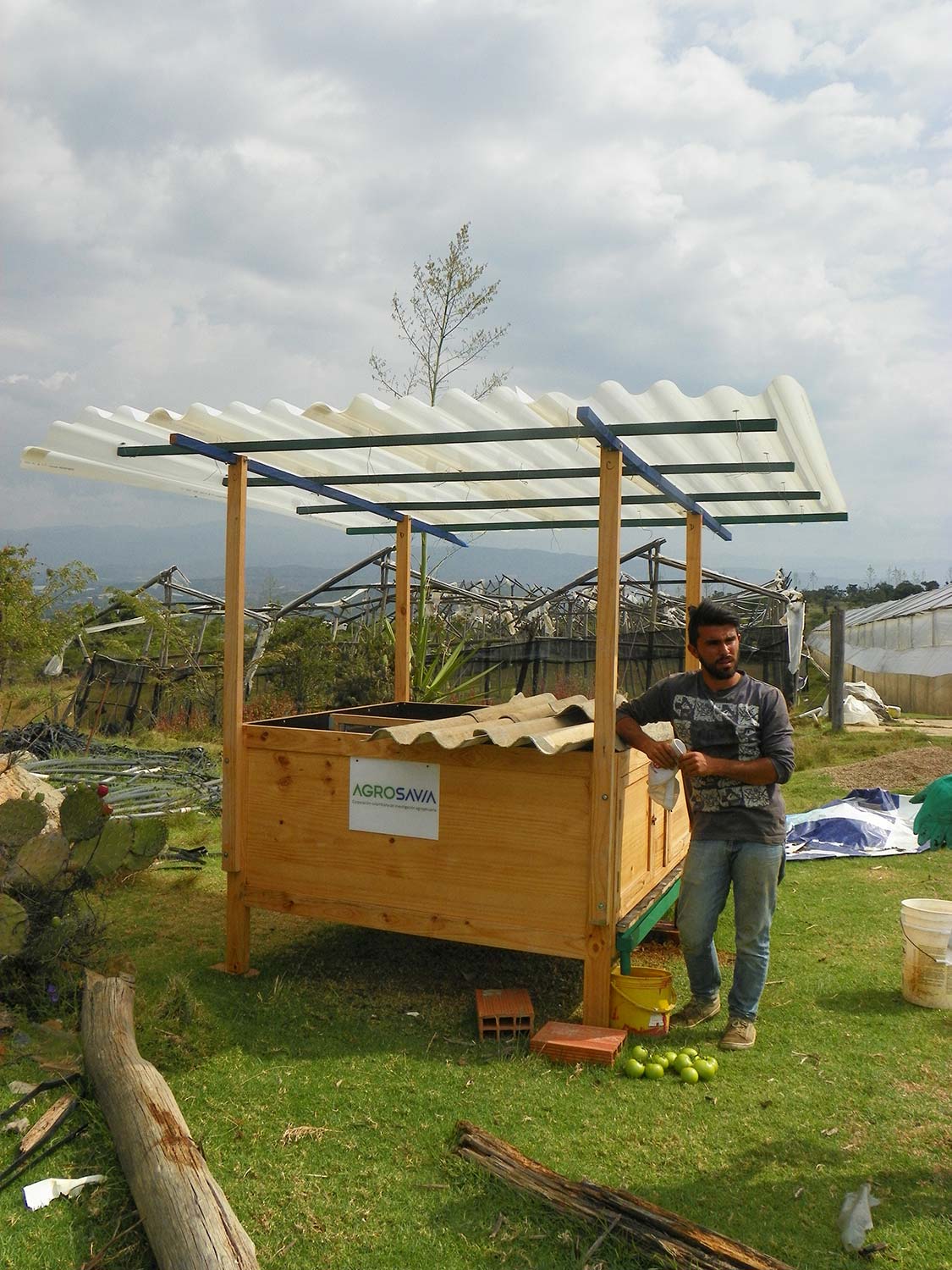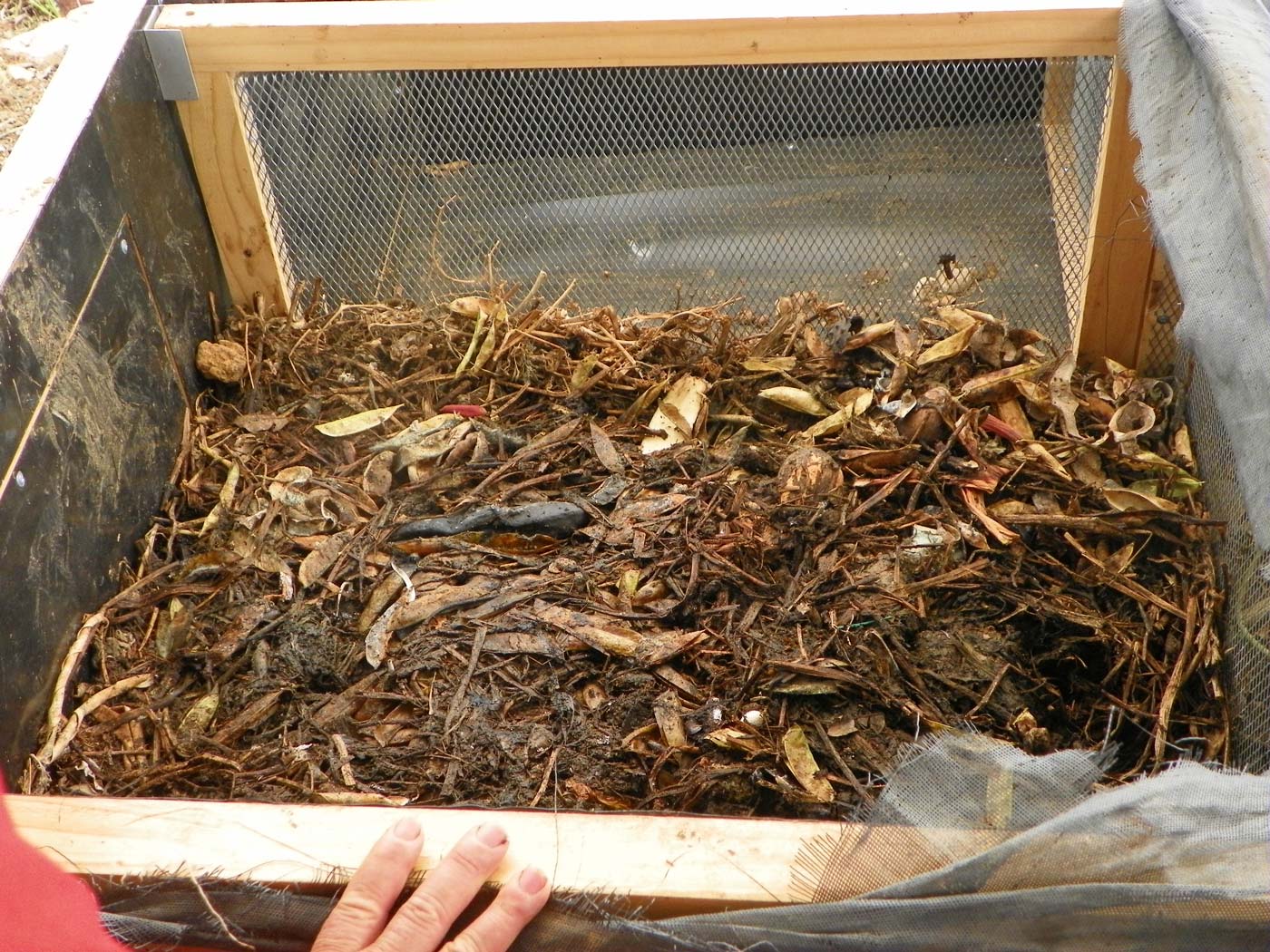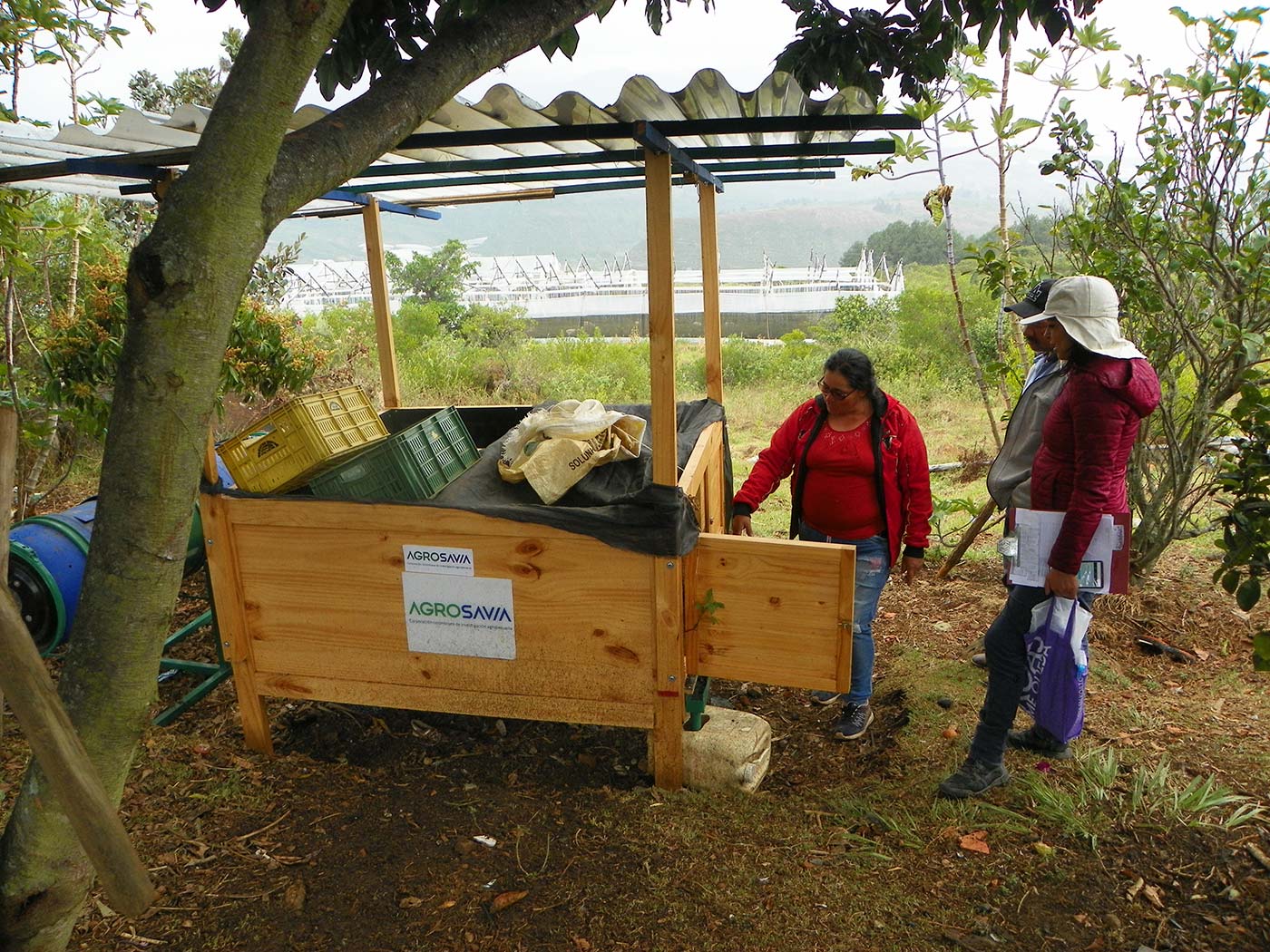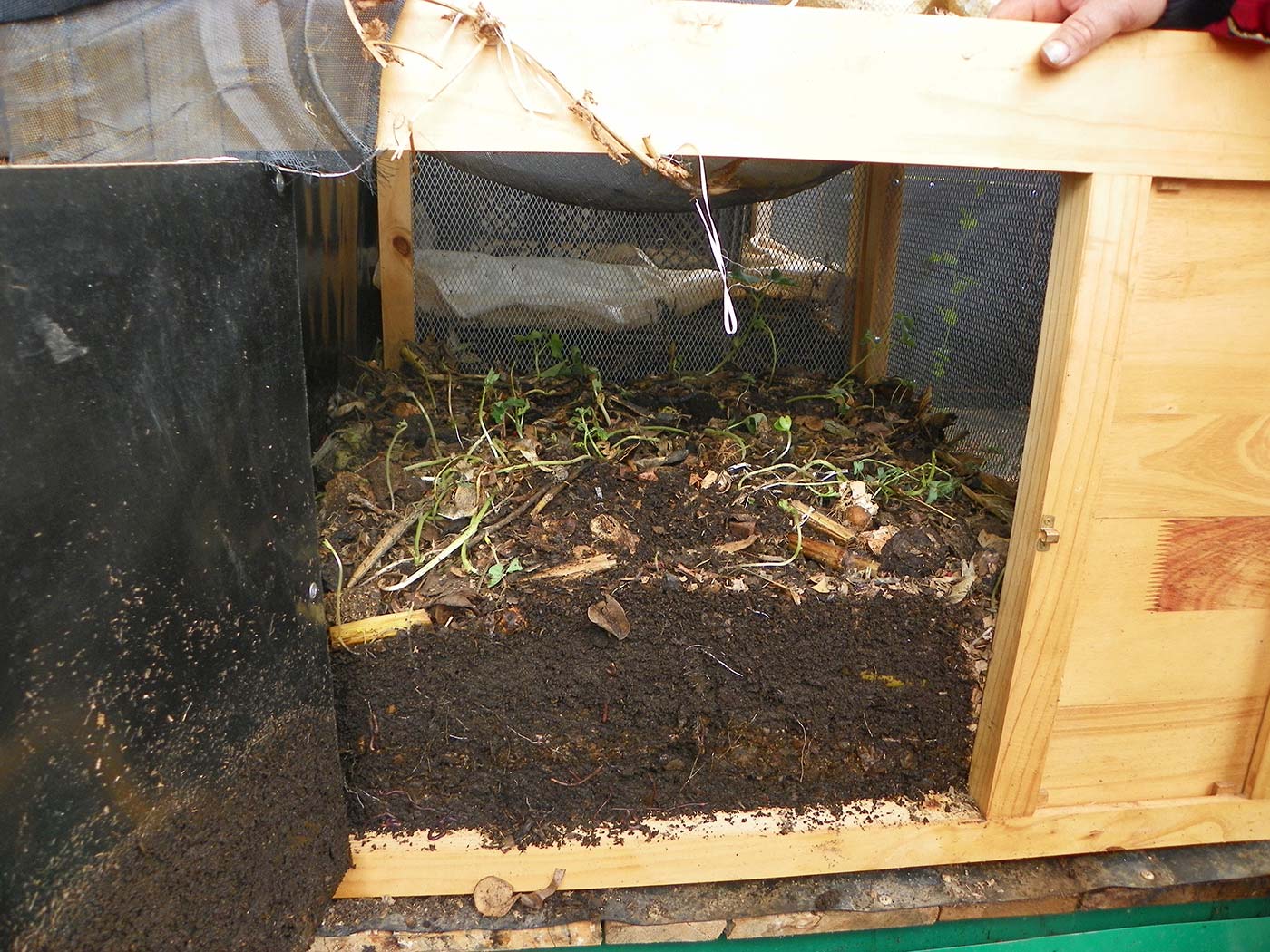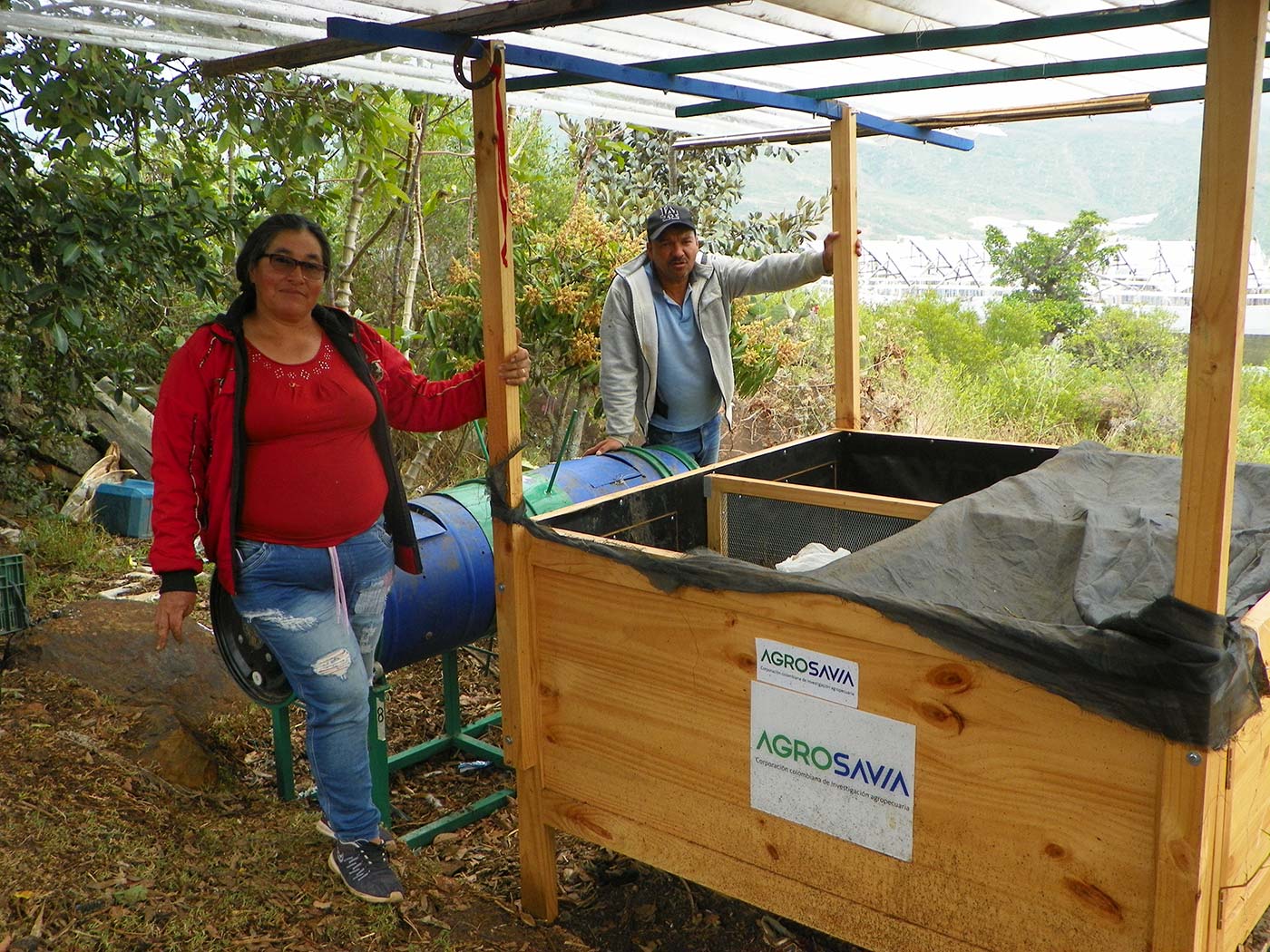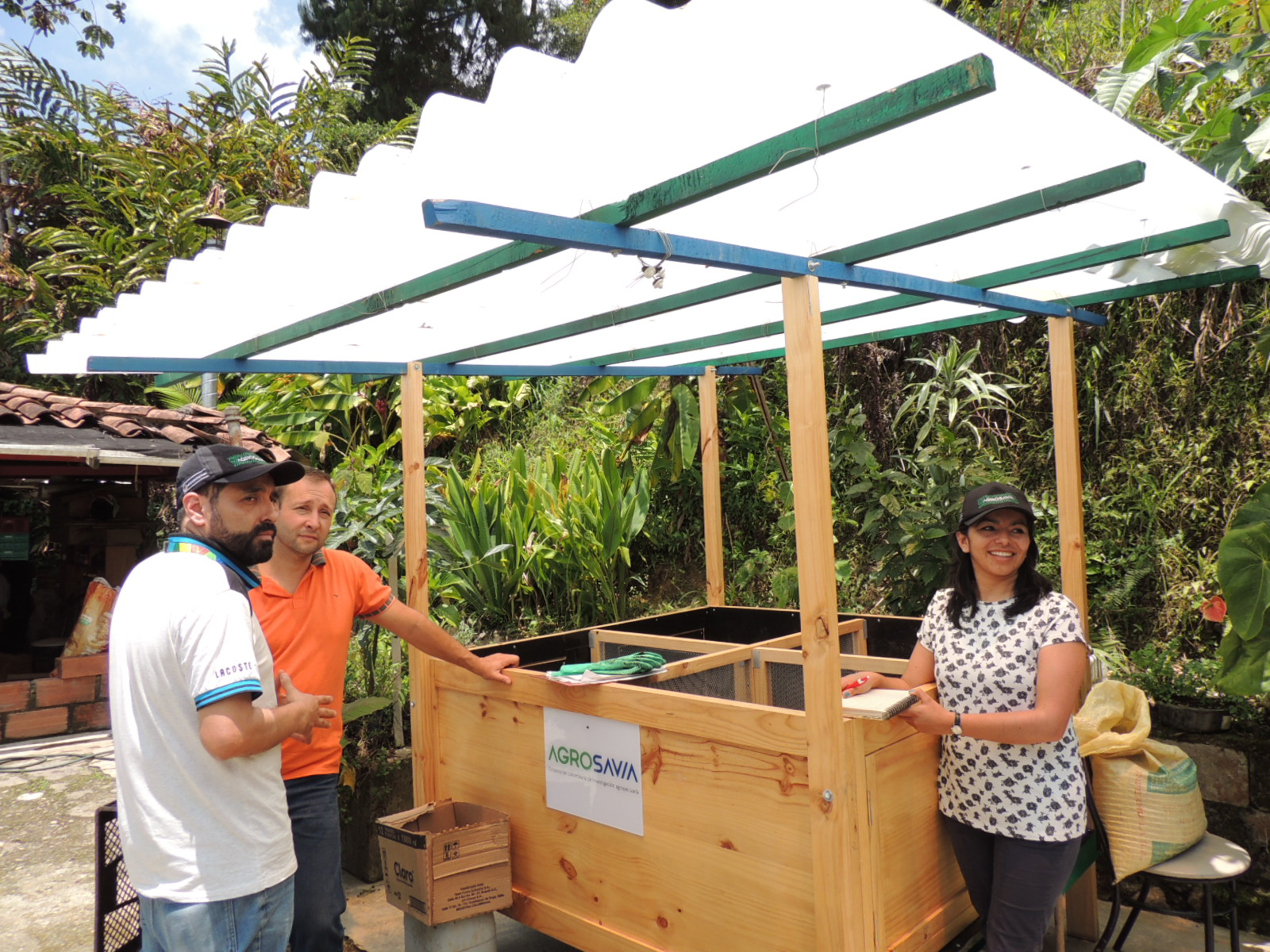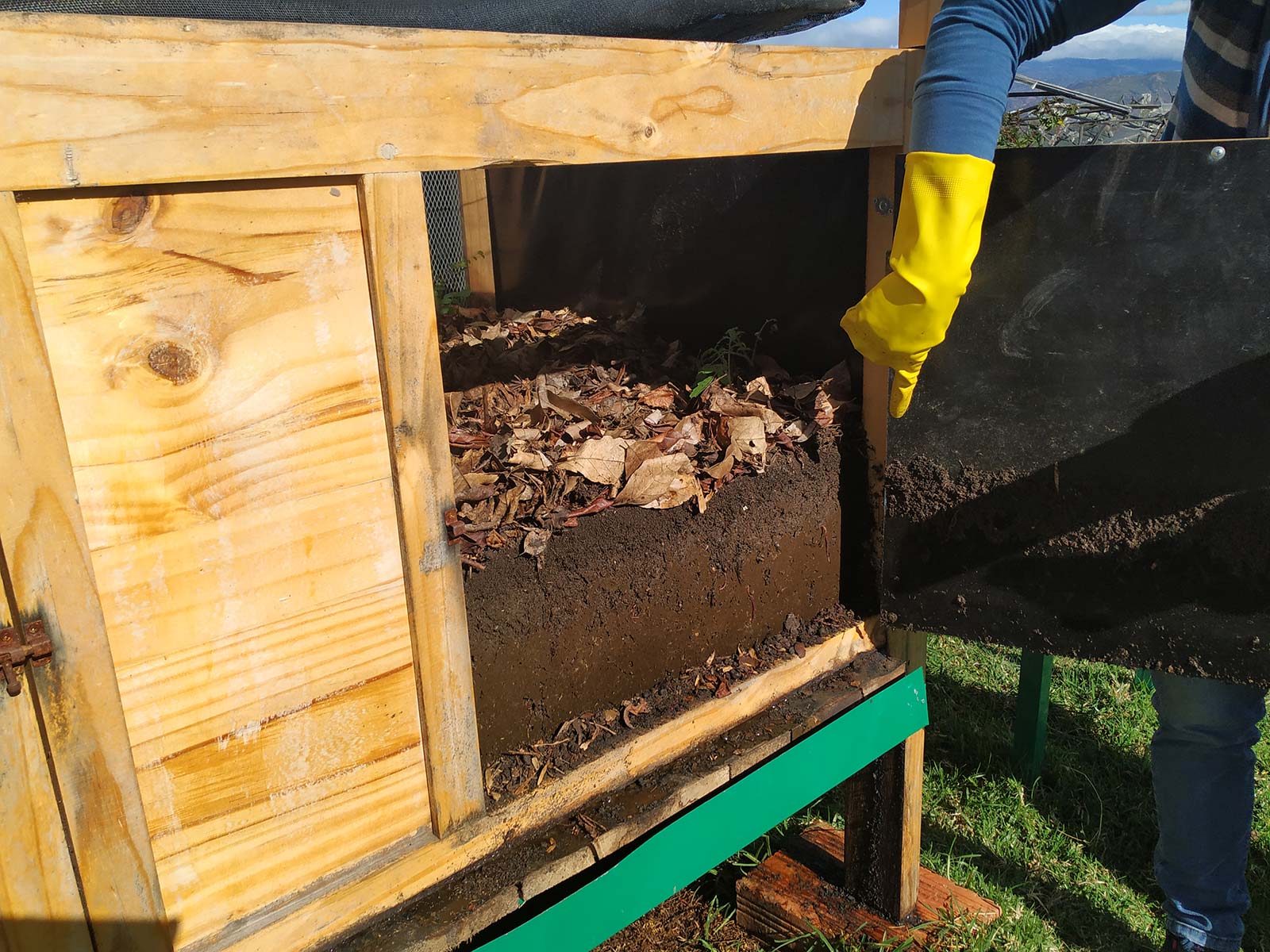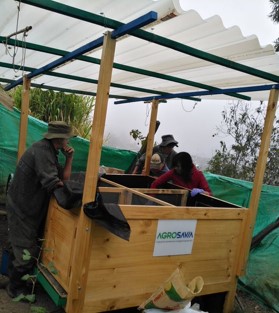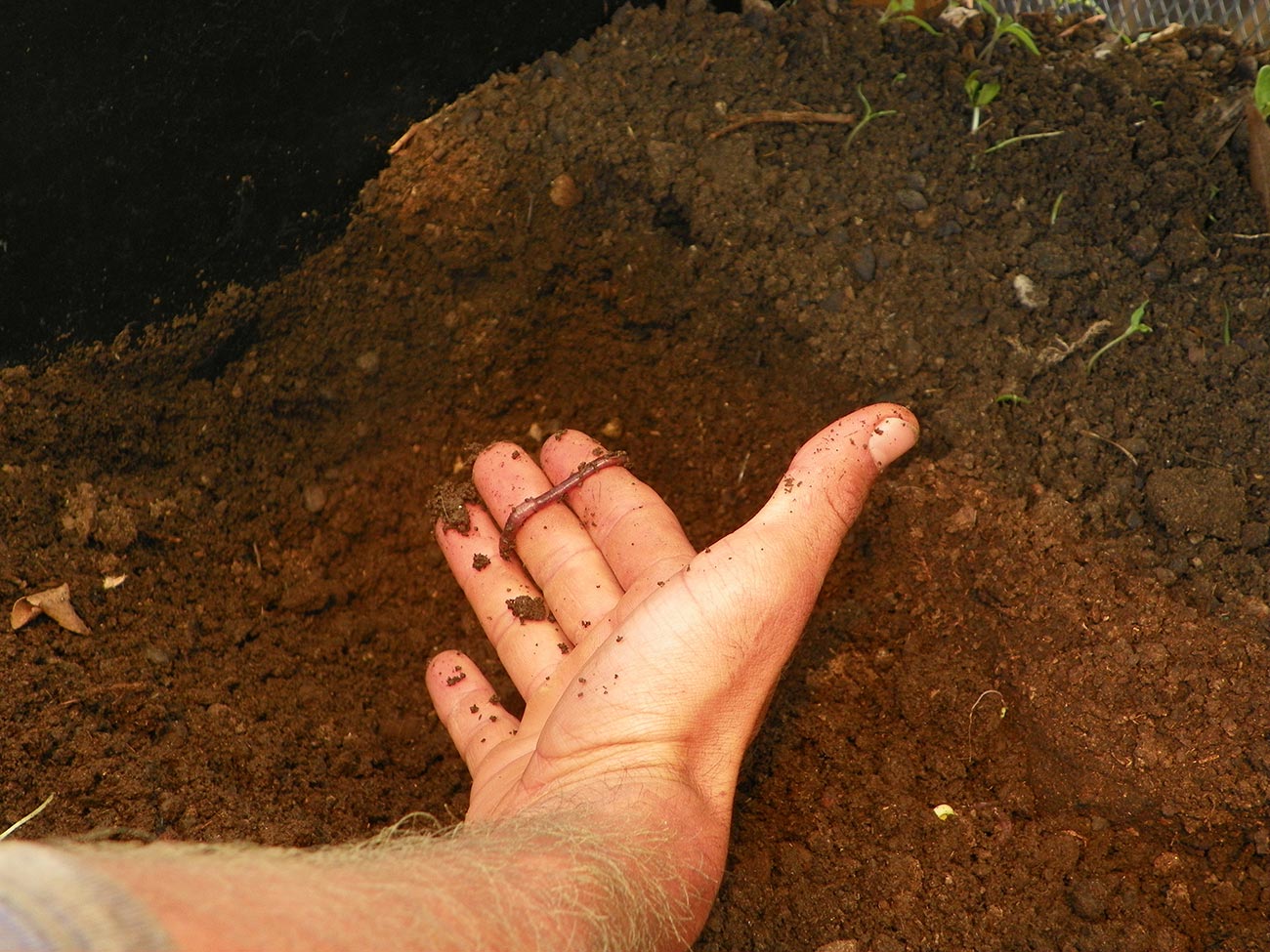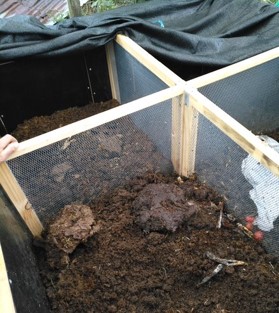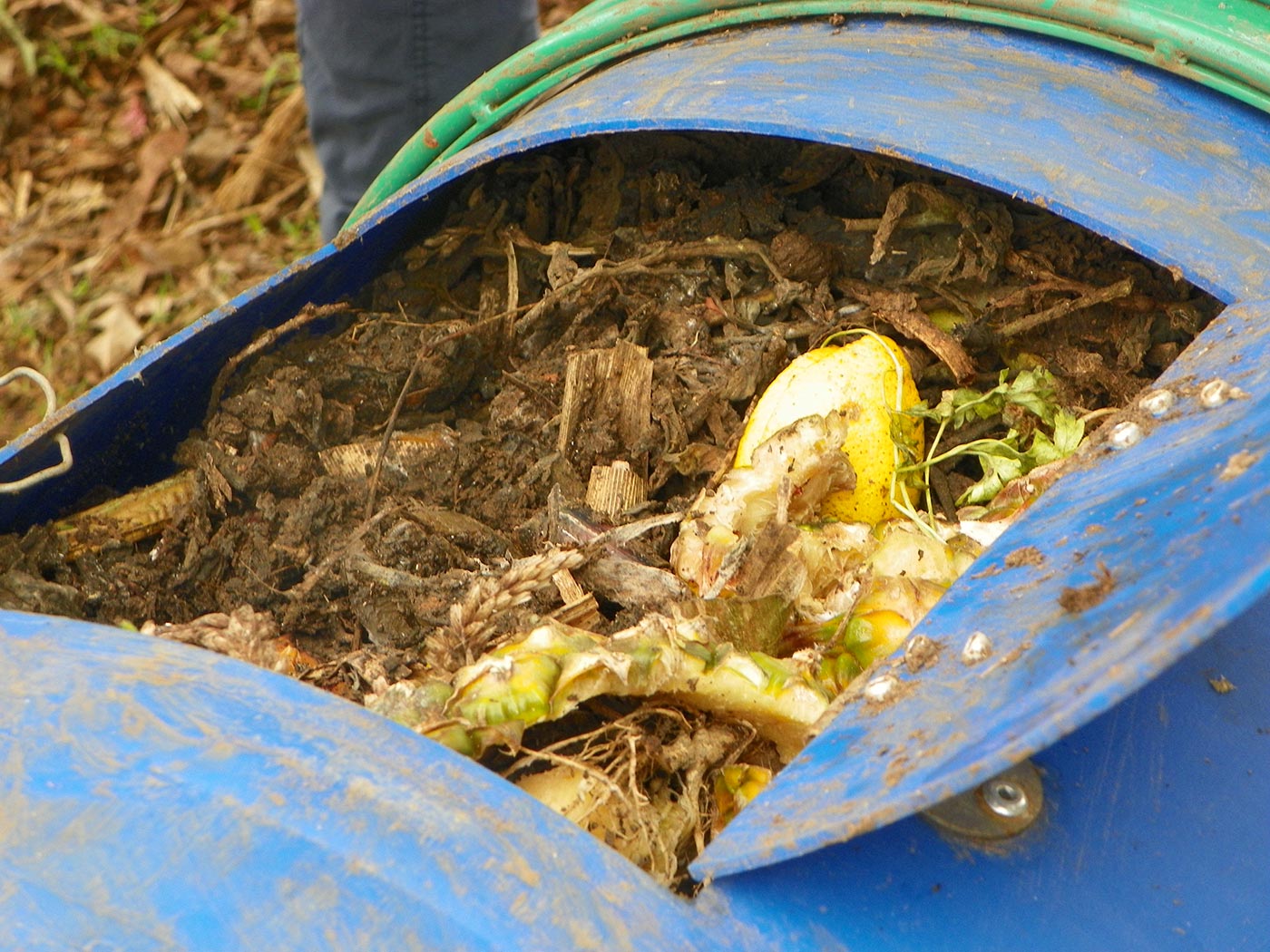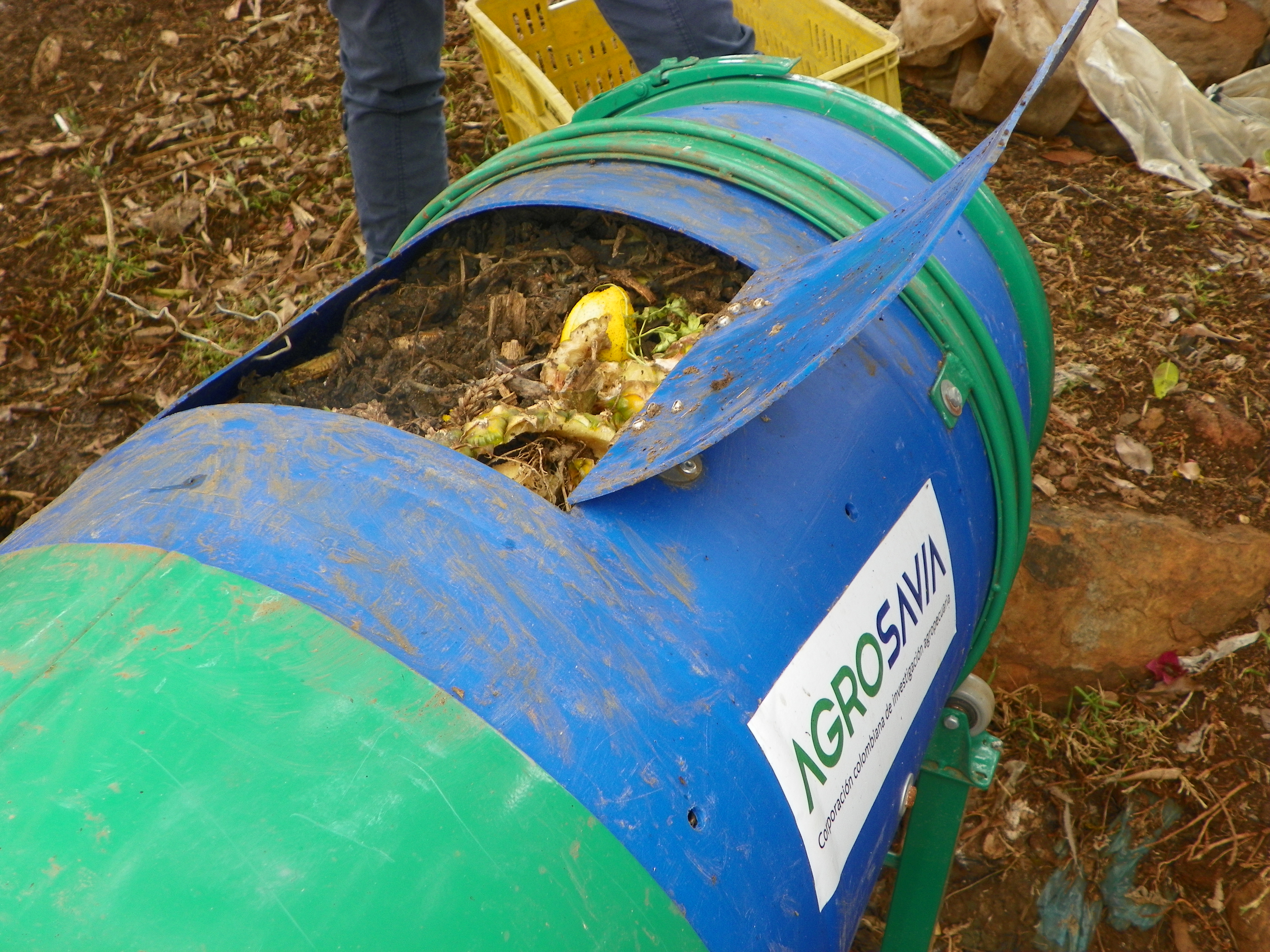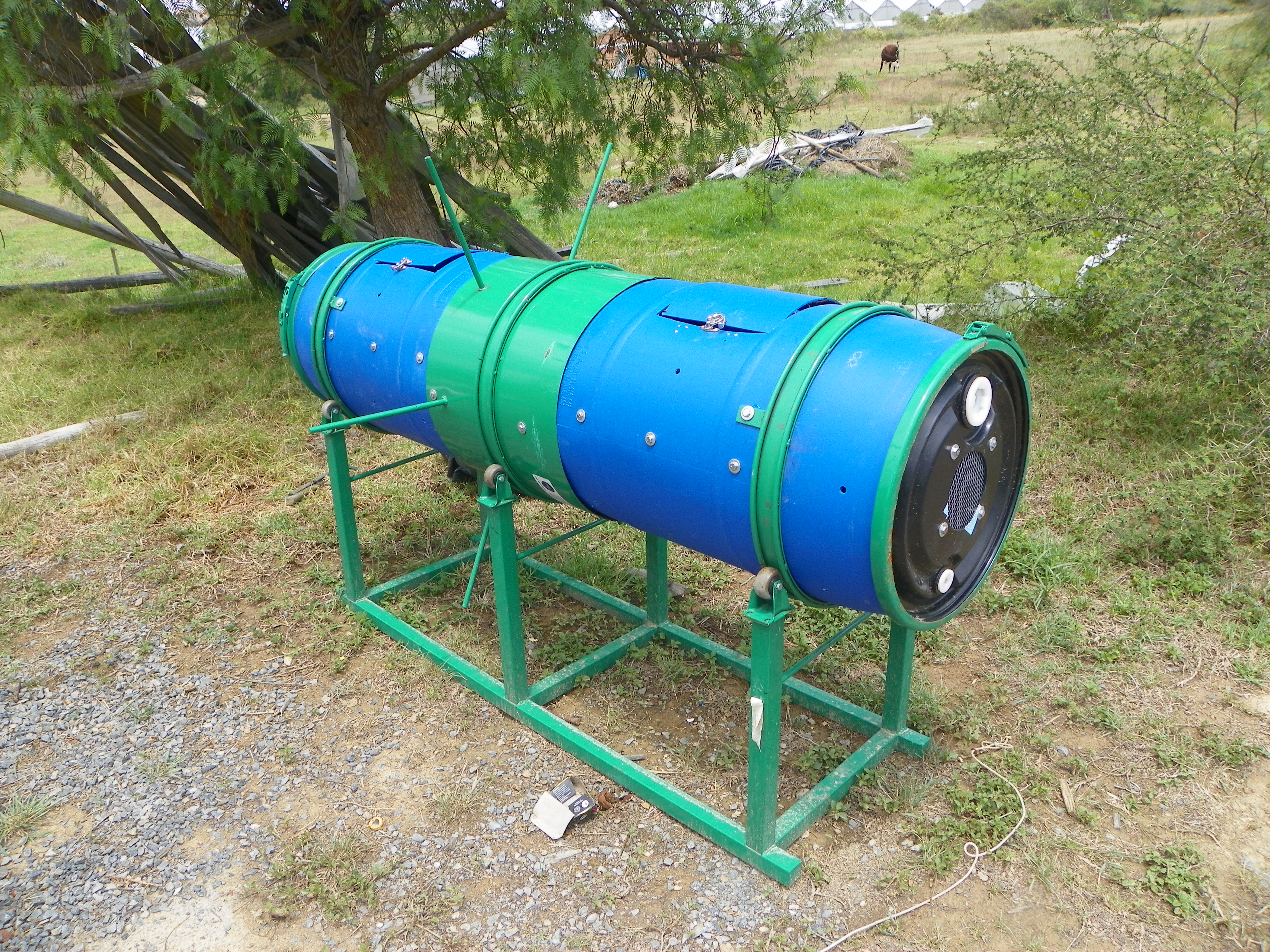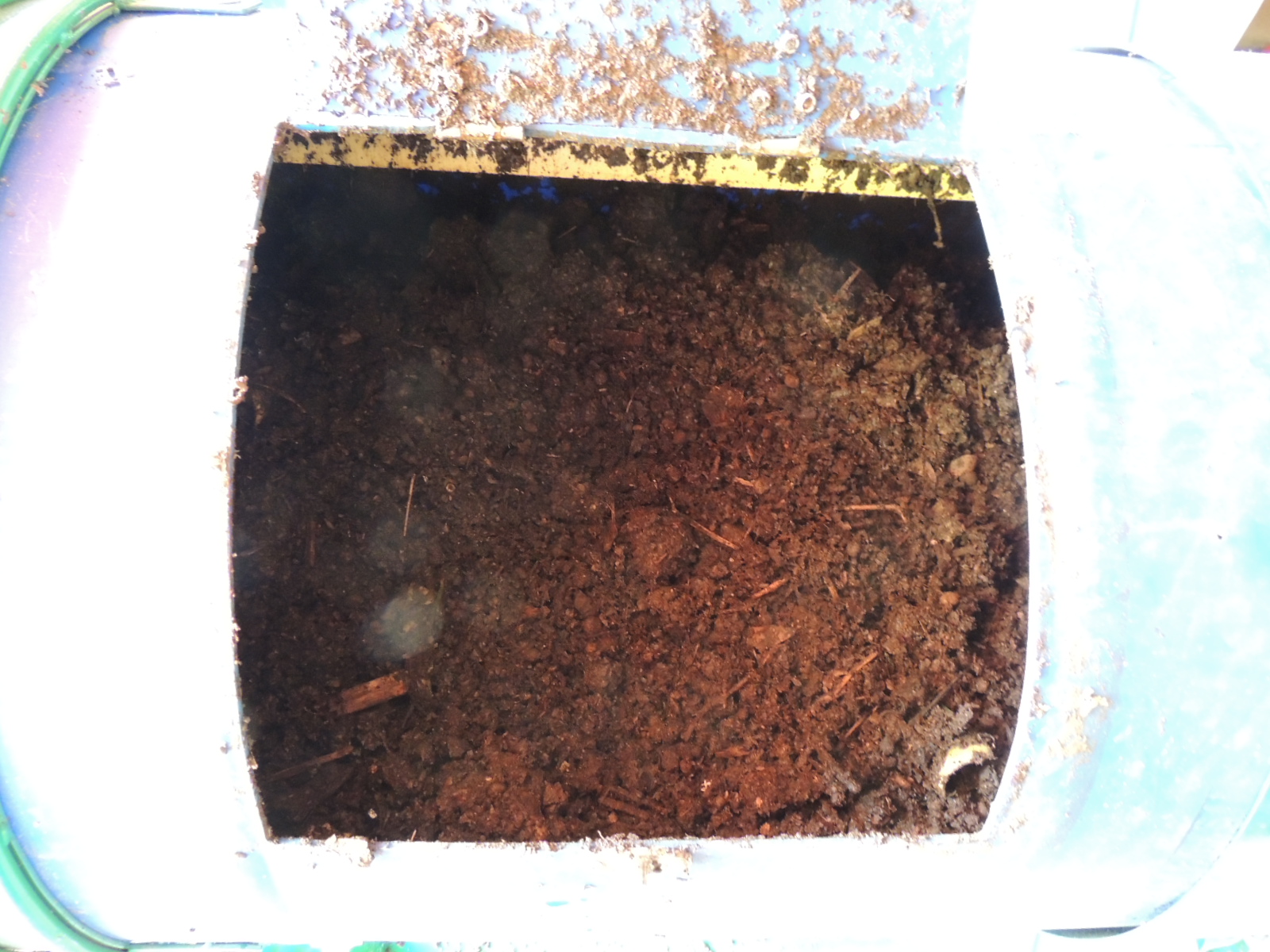Modular equipment for vermicomposting with agricultural residues
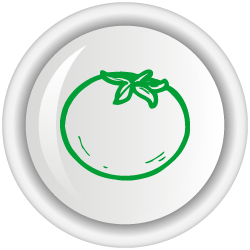
- Thematic area:
- Integrated management of the production system
- Productive system:
- Vegetables
- Geographic coverage:
-
Andean Region
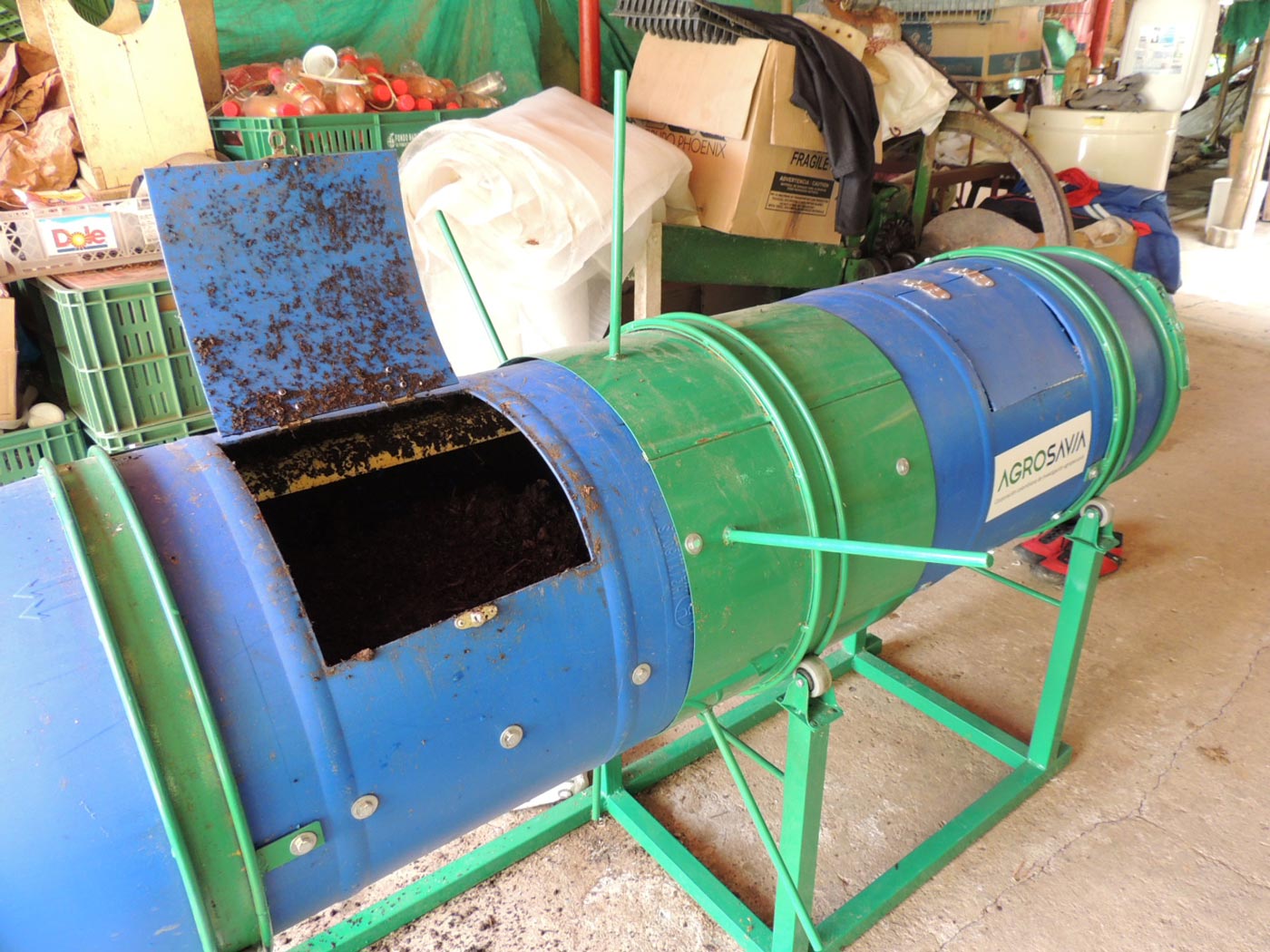
Description
The equipment comprises two modules: one rotary pre-composting module and one integrated vermicomposting module. The rotary pre-composting module consists of two 30-gallon polypropylene tanks (drums), resistant to decomposition, with a steering wheel that allows mixing and turning organic residues using the closed composting method. It has side openings to add organic residues and evacuate the pre-composted material and front doors to monitor humidity, temperature, and pH conditions.
It has the capacity to process 70 kg of raw material in 15 days until reaching an optimal pH in the range of 6.5 to 7.5, dark in color and smelling like soil, which will pass to the vermicomposting module. The latter allows the sequential decomposition and stabilization of the pre-composted material by the combined action of the Californian worm Eisenia fetida and microorganisms in four compartments divided by mesh, allowing the processing of independent compost batches and, in turn, generating a natural movement of the worms from compartments with mature compost to compartments with fresh material.
The modular equipment processes agricultural waste on the farm under protected conditions to obtain organic amendments economically, efficiently, safely, and sustainably. Applying this vermicompost to the soil can improve characteristics such as fertility and health, obtaining better aeration, water retention, and nutrients for the plants.
It has a maximum capacity to use up to 7,000 kilograms of by-products and residues, occupying a space of around 25 m2 and a reduction of up to 40% of the labor costs for the production of organic fertilizers.
The annual capacity of the equipment allows for the production of up to 1,400 liters of liquid fertilizer (leached) and up to seven tons of solid fertilizer, with the transformation of farm residues. Therefore, producers' exposure to chemical agents is reduced due to the organic process, contributing to the assurance and control of diseases and soil fertilization.
This technology is recommended for the departments of Antioquia, Boyacá and Cundinamarca.
Audiovisual content
Módulo de Compostaje y Vermicompostaje
Image gallery
